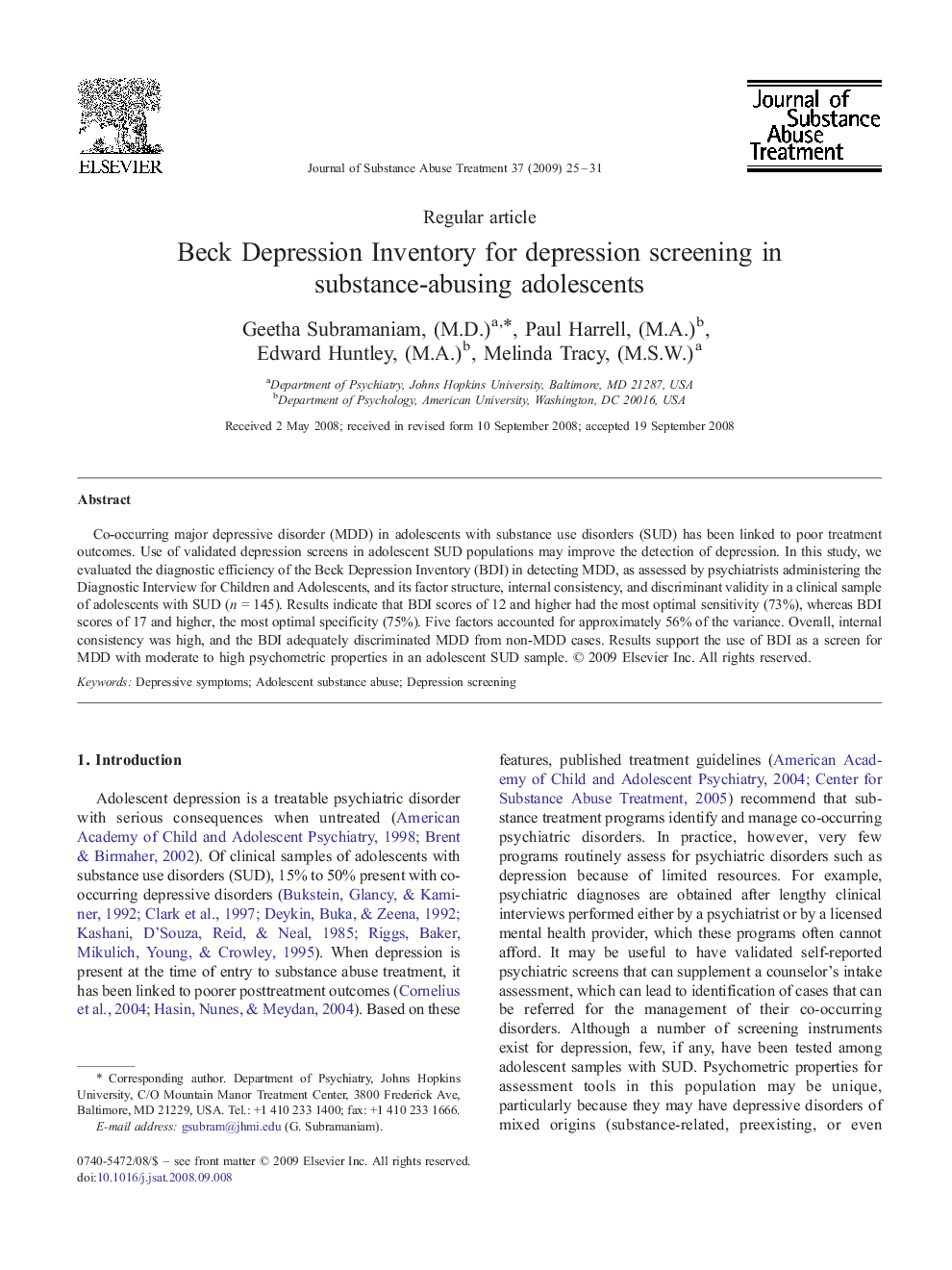| Article ID | Journal | Published Year | Pages | File Type |
|---|---|---|---|---|
| 329996 | Journal of Substance Abuse Treatment | 2009 | 7 Pages |
Co-occurring major depressive disorder (MDD) in adolescents with substance use disorders (SUD) has been linked to poor treatment outcomes. Use of validated depression screens in adolescent SUD populations may improve the detection of depression. In this study, we evaluated the diagnostic efficiency of the Beck Depression Inventory (BDI) in detecting MDD, as assessed by psychiatrists administering the Diagnostic Interview for Children and Adolescents, and its factor structure, internal consistency, and discriminant validity in a clinical sample of adolescents with SUD (n = 145). Results indicate that BDI scores of 12 and higher had the most optimal sensitivity (73%), whereas BDI scores of 17 and higher, the most optimal specificity (75%). Five factors accounted for approximately 56% of the variance. Overall, internal consistency was high, and the BDI adequately discriminated MDD from non-MDD cases. Results support the use of BDI as a screen for MDD with moderate to high psychometric properties in an adolescent SUD sample.
